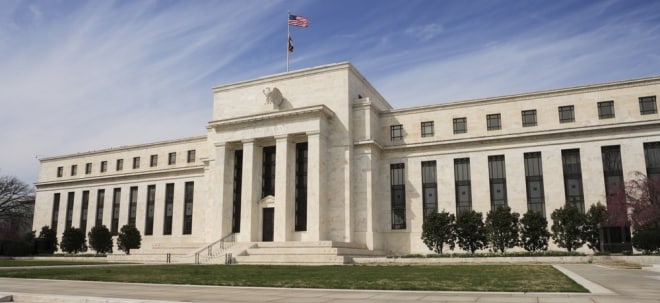FortisBC gas bills to change for customers July 1
Cost of gas rate remains steady for another quarter
SURREY, BC, June 18, 2025 /CNW/ - FortisBC Energy Inc. (FortisBC) has received approval from the British Columbia Utilities Commission (BCUC) to maintain the cost of gas rate for its customers at $2.230 per gigajoule (GJ) as of July 1. Also on July 1, all FortisBC customers will have three per cent of their gas designated as Renewable Natural Gas1 (RNG) through the designated RNG blend, up from two per cent. The increase to the designated RNG blend has been approved on an interim basis. The BCUC reviews FortisBC's cost of gas and voluntary RNG program rates every three months.
"We understand that affordability and reliability are top priorities for many of the families and businesses we serve in British Columbia," said Sarah Nelson, director of customer service at FortisBC. "That's why we remain committed to keeping rates as low as possible while ensuring reliable energy service and supporting progress on climate action goals."
Approved on an interim basis, the increase in the designated RNG blend will result in a slight increase to the storage and transport rate. This results in an overall approximate annual increase of 2.9 per cent for customers in the Lower Mainland, Fraser Valley, Interior, North, Whistler, Vancouver Island, Revelstoke and the Kootenays, and approximately 3.5 per cent annually for customers in Fort Nelson.
Adding RNG to North America's gas system does not require customers to change (or retrofit) any of their existing gas appliances or equipment. The designated RNG blend is included in the storage and transport line item on customer bills. The adjustment has received interim approval from the BCUC and is subject to further review. FortisBC will continue to offer the voluntary RNG program so customers can choose to designate up to 100 per cent of the gas they use as RNG, inclusive of the three per cent designated blend.
FortisBC acquires gas at market-based prices, and factors like supply and demand, weather and economic conditions affect the price of gas in North America. FortisBC does not mark up the cost of natural gas, so customers pay what it pays.
Customers who have questions about their bill are encouraged to reach out. FortisBC's customer service team can answer billing questions, provide energy-saving tips and offer payment plan solutions that fit individual needs.
For more information about rates and the components that make up a FortisBC gas bill, visit fortisbc.com/rates.
About FortisBC Energy Inc.
FortisBC Energy Inc. is a regulated utility focused on providing safe, reliable and affordable energy, including natural gas, Renewable Natural Gas and propane. FortisBC Energy Inc. employs around 2,143 British Columbians and serves approximately 1,086,500 customers across British Columbia. FortisBC Energy Inc. owns and operates two liquefied natural gas storage facilities and approximately 51,600 kilometres of gas transmission and distribution lines. FortisBC Energy Inc. is a subsidiary of Fortis Inc., a leader in the North American regulated electricity and gas utility industry. FortisBC Energy Inc. uses the FortisBC name and logo under license from Fortis Inc. For further information on FortisBC Energy Inc., visit fortisbc.com. For further information on Fortis Inc., visit fortisinc.com.
BACKGROUNDER
Rates at a glance
Service area | Cost of gas rate | Delivery charge | Storage and transport charge | Total bill change* |
Lower Mainland, Fraser Valley, Interior, North, Whistler, Vancouver Island, Revelstoke and the Kootenays | No change at $2.230 per GJ | No change | $1.397 per GJ to $1.788 per GJ | Approximately 2.9 per cent per year |
Fort Nelson | No change at $2.230 per GJ | No change | $1.397 per GJ to $1.788 per GJ | Approximately 3.5 per cent per year |
*Excluding taxes and levies.
Items on a residential gas customer's bill
Daily or monthly basic charge
The basic charge is a flat fee that partially recovers the fixed costs of our system, whether or not a customer is using any gas, as long as the customer is connected to the system.
Delivery charge
The delivery charge is based on consumption and pays for the cost of safely and reliably delivering gas through our system to our customers' homes and businesses. This helps cover the costs of maintaining our gas distribution system, provides a return to our investors and funds improvements to meet customers' needs. Delivery charges are reviewed by the BCUC annually.
Storage and transport charge
The storage and transport charge reflects the prices we pay to other companies to store and transport gas through their pipelines and infrastructure. We do not mark up these costs, and they are reviewed quarterly and set annually by the BCUC. The storage and transport charge also includes the cost of the RNG blend.
Cost of gas rate
Every three months, FortisBC reviews the cost of gas rates with the BCUC to make sure rates passed on to customers cover the cost of the commodity purchased on their behalf. We do not mark up the cost of gas, so customers pay what we pay. Factors affecting the market price of natural gas in North America include weather, supply and demand and economic conditions.
Other charges and taxes
Other charges and taxes include the B.C. clean energy levy, Goods and Services Tax and, in some municipalities, a municipal operating fee. These charges are set by various levels of government and collected by FortisBC on their behalf. FortisBC does not gain revenue from these charges.
_________________________ |
1 Renewable Natural Gas (also called RNG or biomethane) is produced in a different manner than conventional natural gas. It is derived from biogas, which is produced from decomposing organic waste from landfills, agricultural waste and wastewater from treatment facilities. The biogas is captured and cleaned to create RNG. When RNG is added to North America's natural gas system, it mixes with conventional natural gas. This means we're unable to direct RNG to a specific customer. But the more RNG is added to the gas system, the less conventional natural gas is needed, thereby reducing the use of fossil fuels and overall greenhouse gas emissions. |
SOURCE FortisBC Energy Inc.


